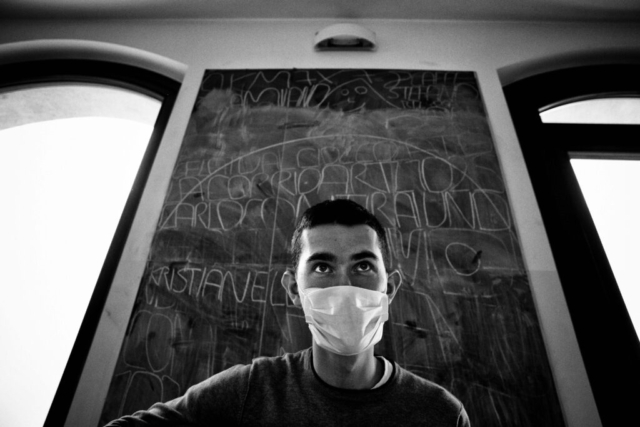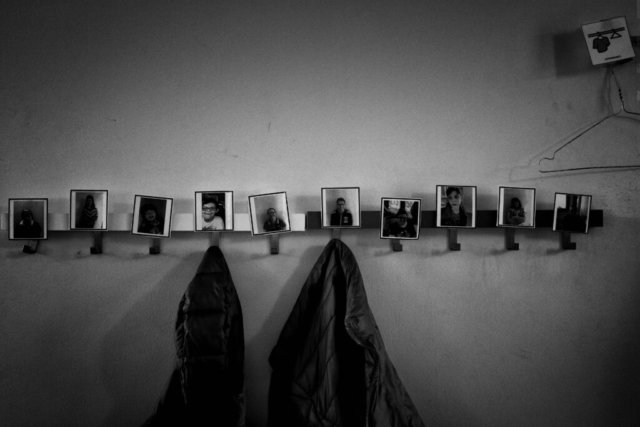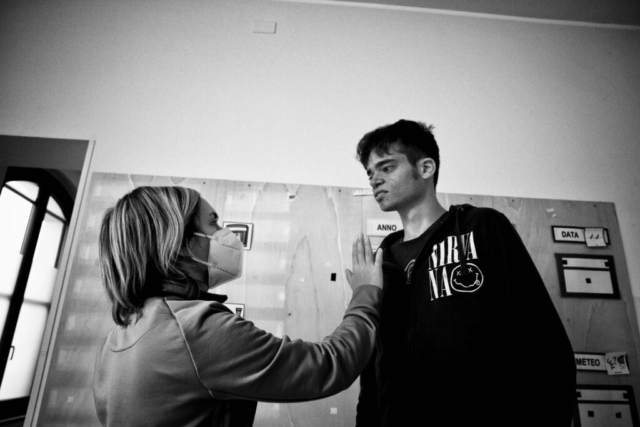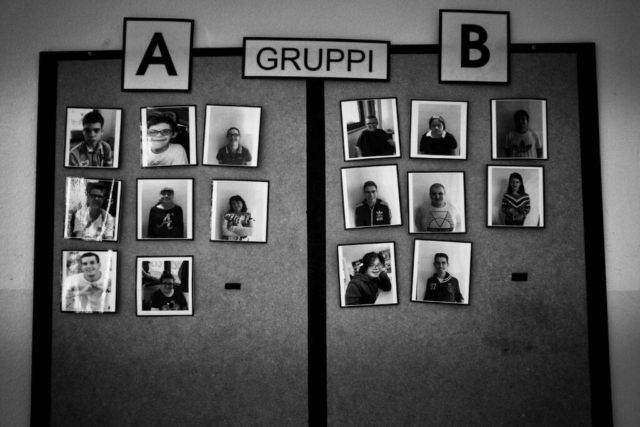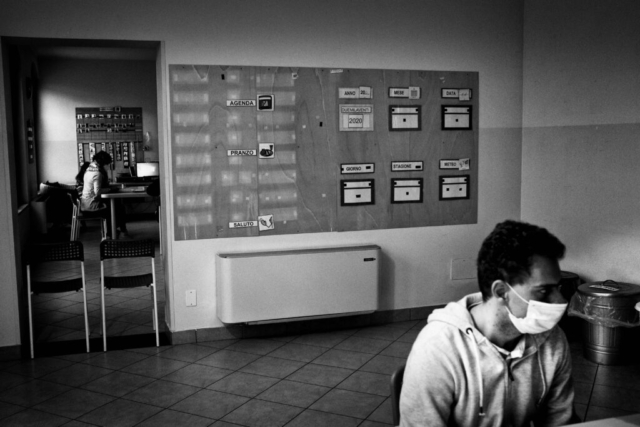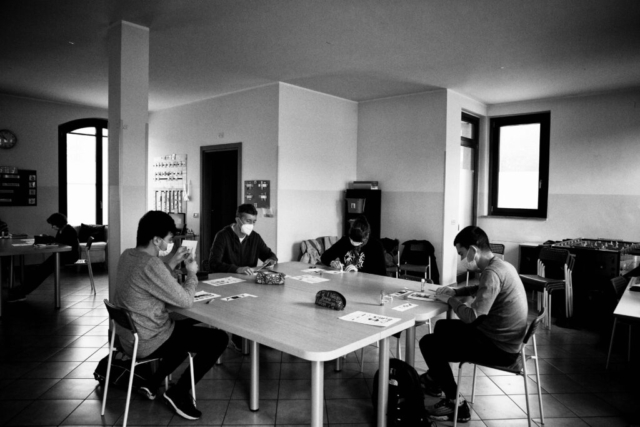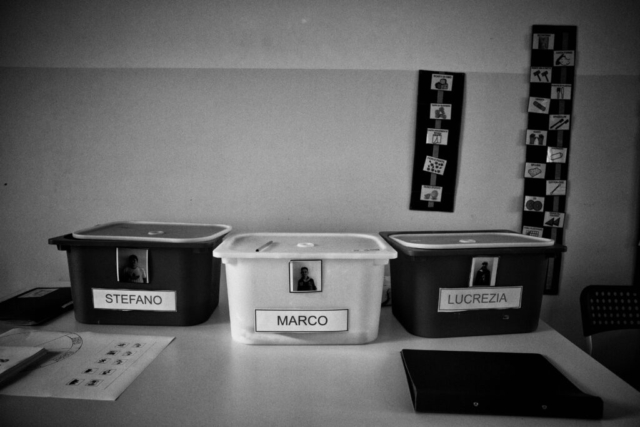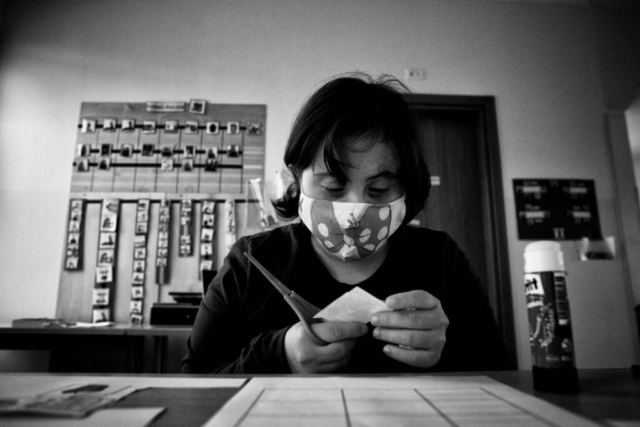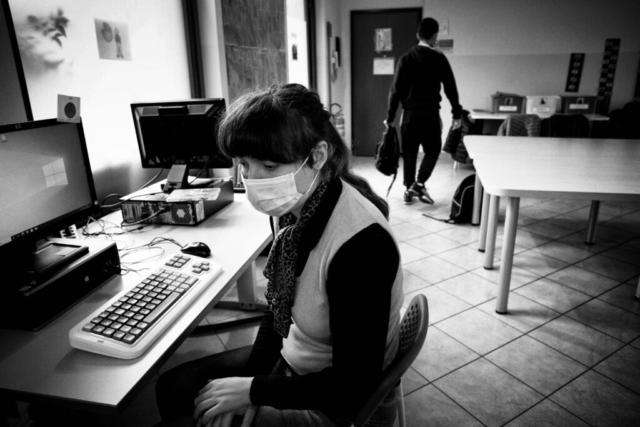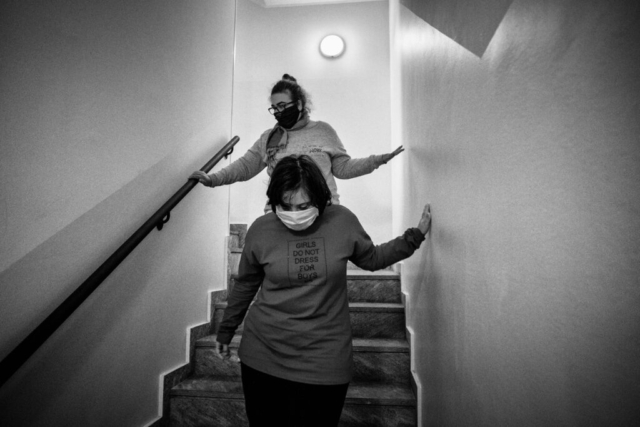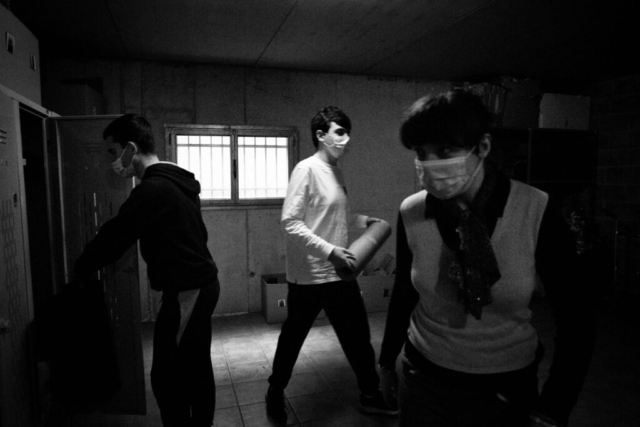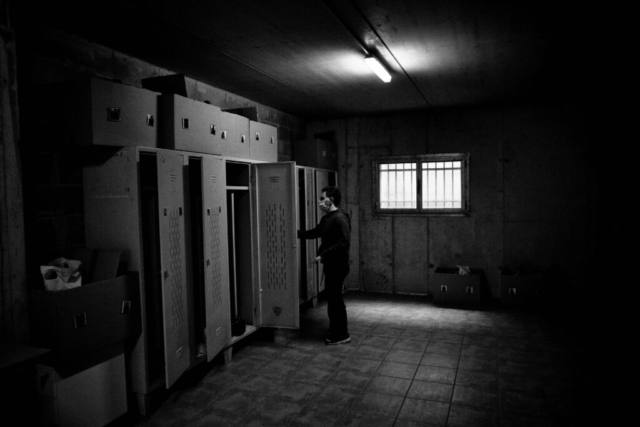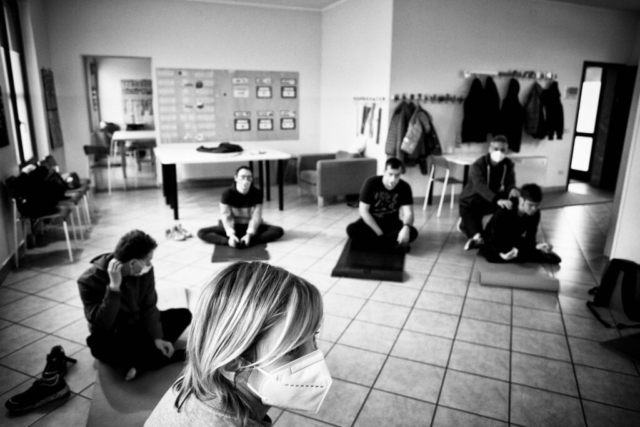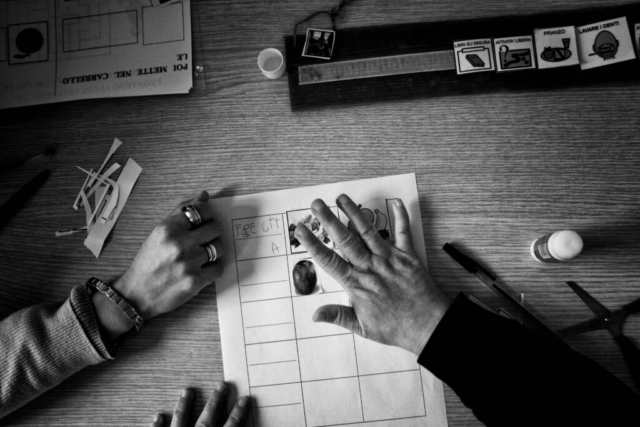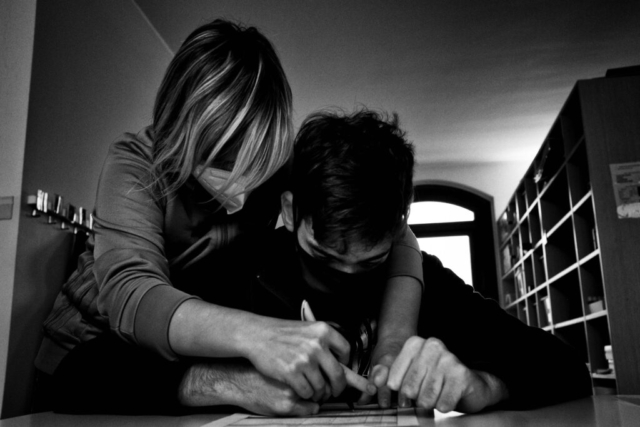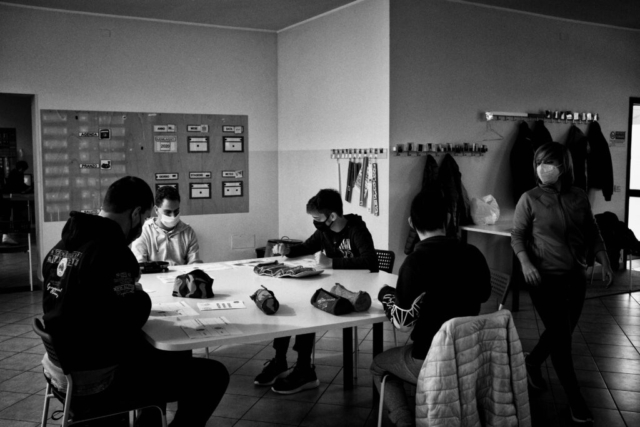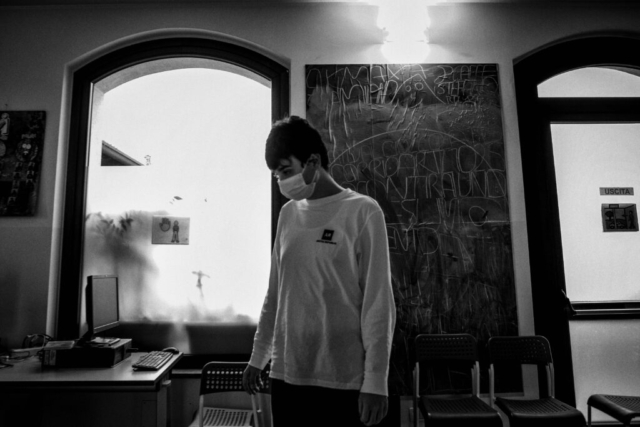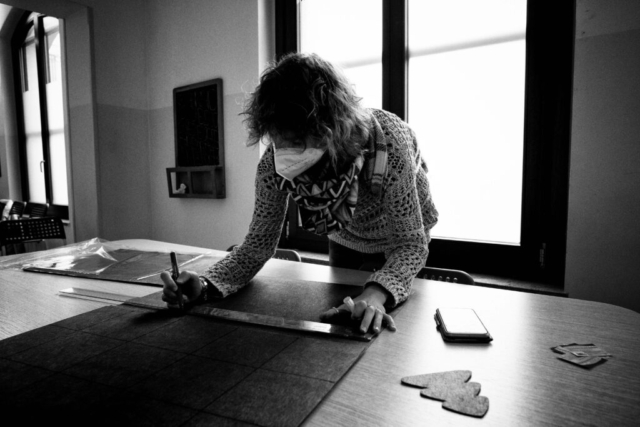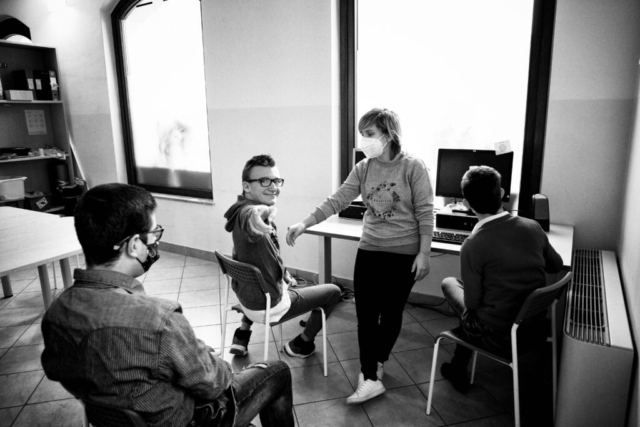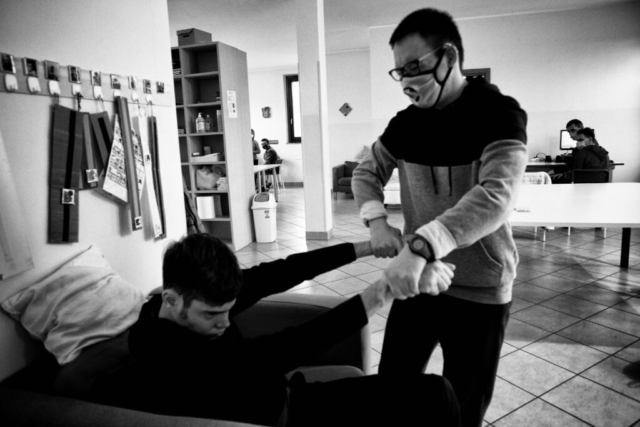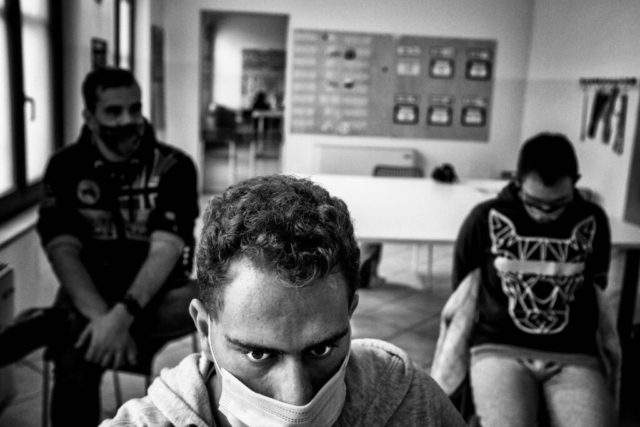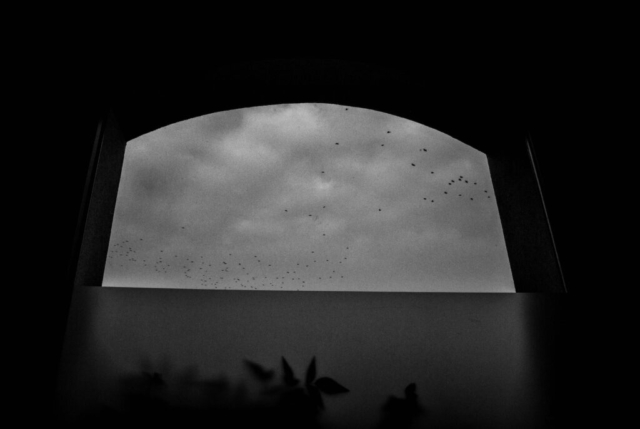Who does not make noise In February 2020 the world suddenly found itself united by a pervasive health need, because Covid 19 knows no territorial boundaries, social conditions, age, gender, the pandemic affects everyone, highlighting the ‘fragility’ of people and states. According to ISTAT, there are 3.1 million disabled persons in Italy, 5.2% of the Italian population, but it is also a whispering reality, often supported by ‘welfare’ laws, which are important to enshrine a principle but lacking in design laws and with social connotations, which are fundamental for a person who is born social. Observing these last two years of emergency, my gaze focused on the disabled ‘person’, because it was precisely Covid 19 that swept away the small progress and achievements of the last few years in an instant. At last, with Article 14 of Law 328/2000, the individual project had been introduced, which brought the disabled ‘person’ back to the centre; the arrival of Covid has wiped out this important principle with a flick of the wrist, causing old bureaucratic schemes and the purely economic side of disability to re-emerge.
In the chaos of Ministerial, Regional, and Municipal decrees that have submerged us over the last two years, the difficulty for families and managing bodies to continue caring for, supporting, and carrying out projects aimed at ‘persons’ with disabilities has emerged forcefully, because bureaucracy itself has ‘played’ with the third sector’s funding with specious legal quibbles and made relations between institutions conflictual. The third sector, the sentinel of the territory and the social sector, which intercepts the needs of disabled ‘people’, in this pandemic has had to reinvent itself with new projects to bypass that ‘social distancing’ which is essential to contain the virus but deleterious to people who need a social context. Casa Filippide, which is a socio-educational centre, starting from the concept that assisting and caring for persons with disabilities is not an activity that can be suspended while waiting for better times, has tried to stem this forced distancing by designing and reinventing a suitable educational programme to bring the ‘boys’ closer to a virtual reality that is indispensable for staying connected, continuing to focus on both an ‘individualised’ and a group programme.
- All Posts
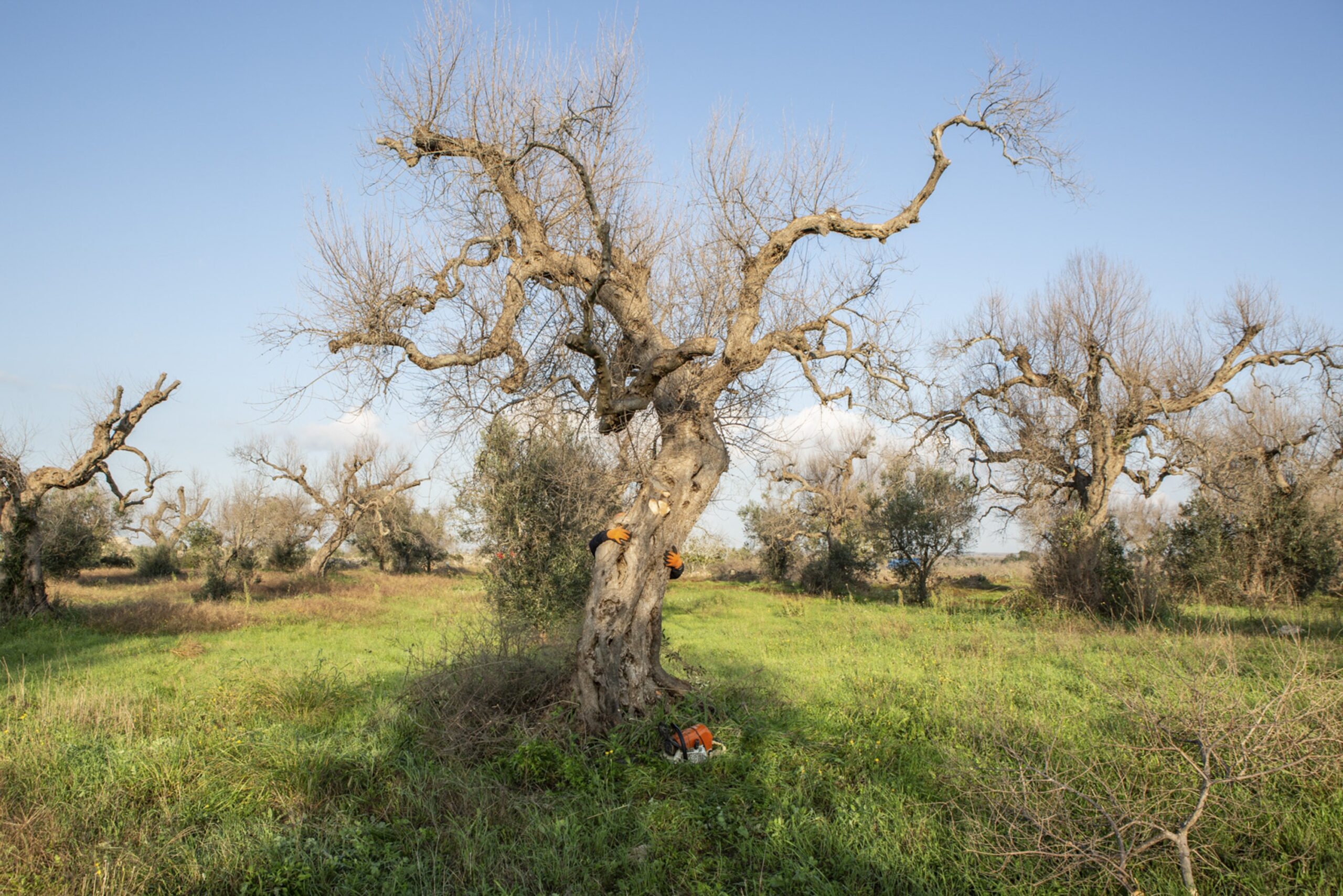
In Apulia, the Patriarchs, also called the Sages, are the secular olive trees that have characterized the region for hundreds of years and are now threatened with extinction. Prof. Purcell’s words urged me to deepen the research on this project. August 2013. Donato Boscia – coordinator of the department IPSP…
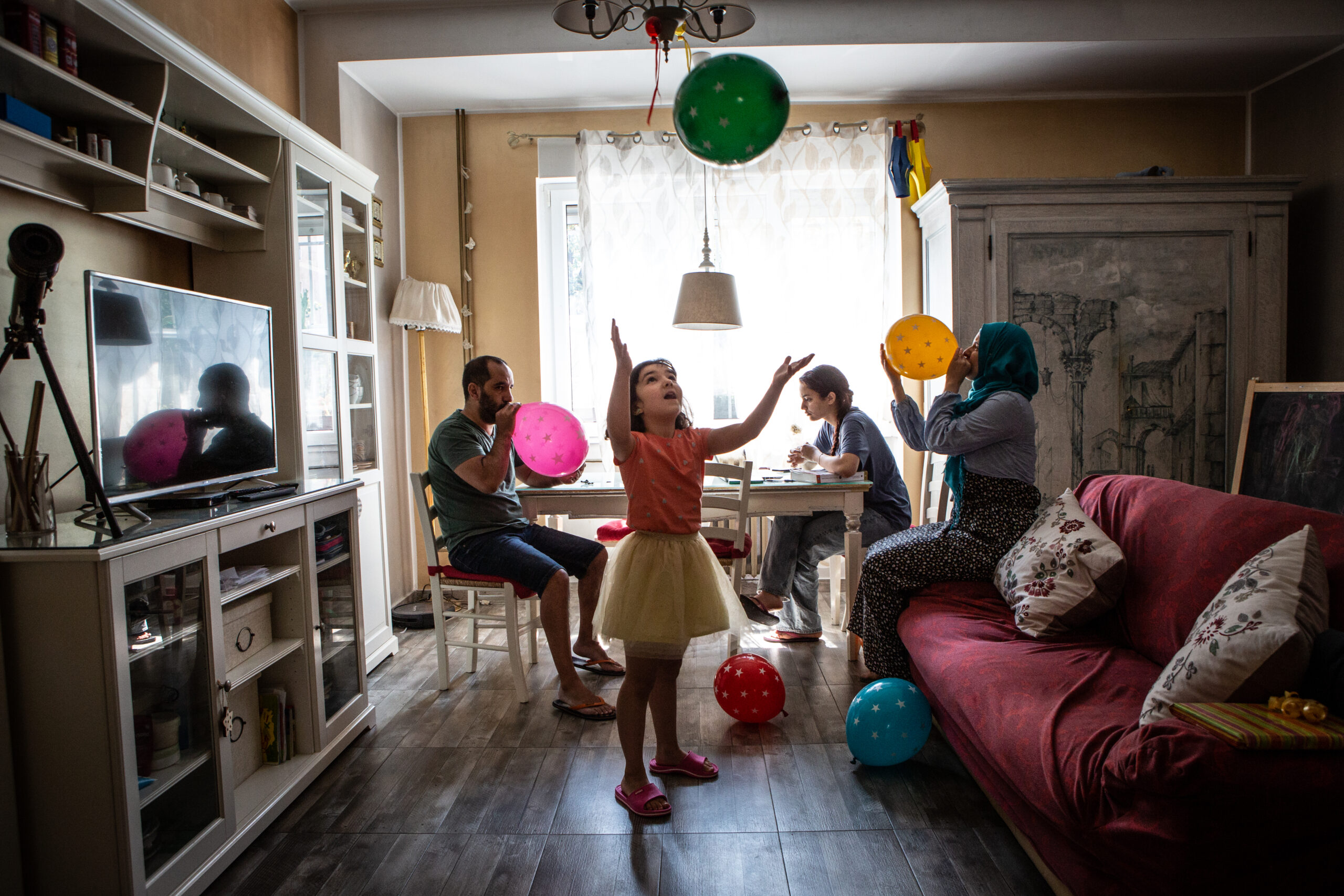
Amina is Italian-Palestinian, was born in Modena and has lived in Milan since 2015. She is a mother of six and founder of ‘Aisha Project’, a pioneer NGO in Europe that aims to empower women, promoting their freedom of choice and socio-economic independence. The association she founded in 2016 has…
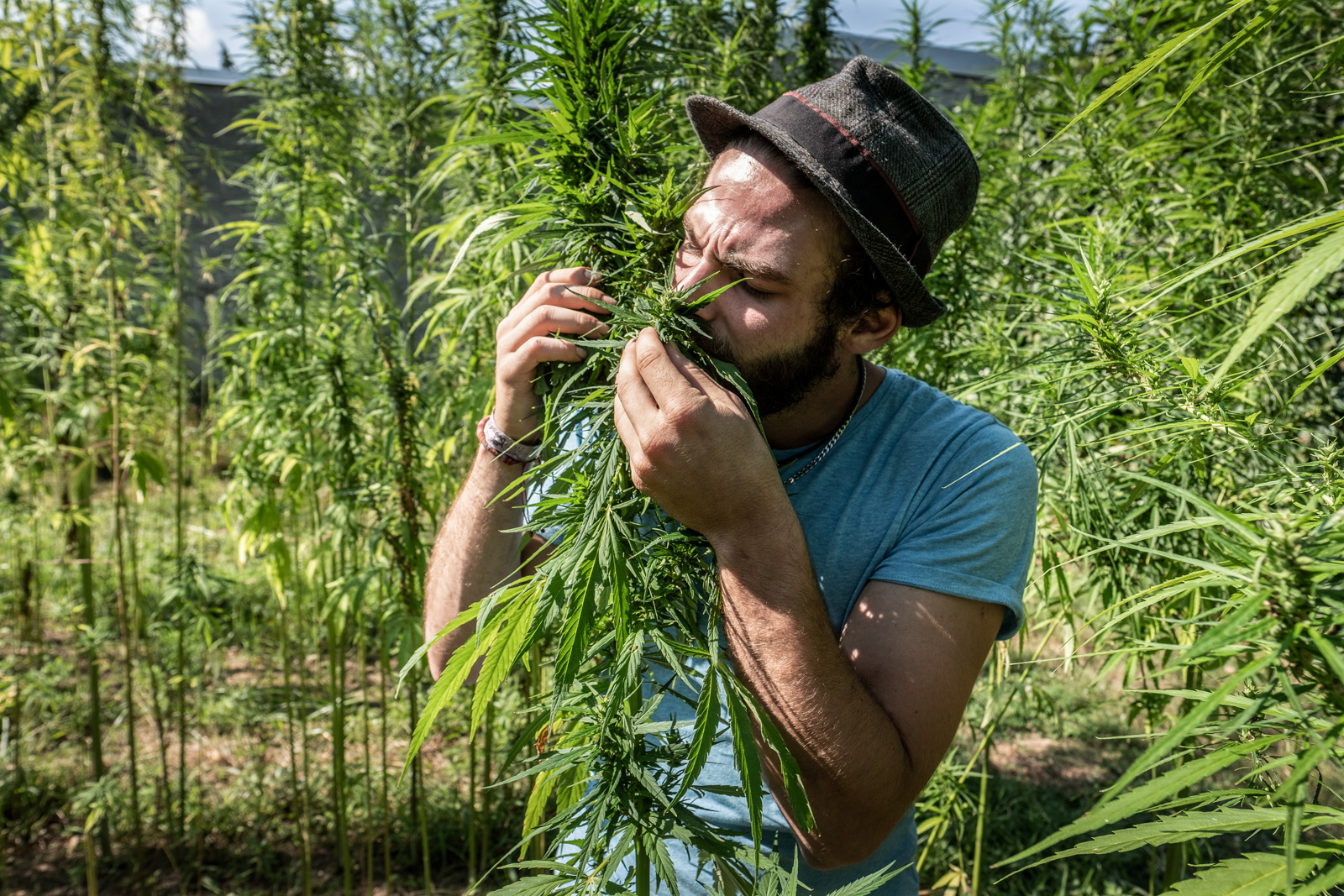
For the past 60 years, hemp has been in the global news and declared an illegal substance for both use and unauthorised possession. Following a first step taken in 2016 where the use of CBD (a molecule found in hemp) was legalised, on 2 December 2020 the UN Commission on…
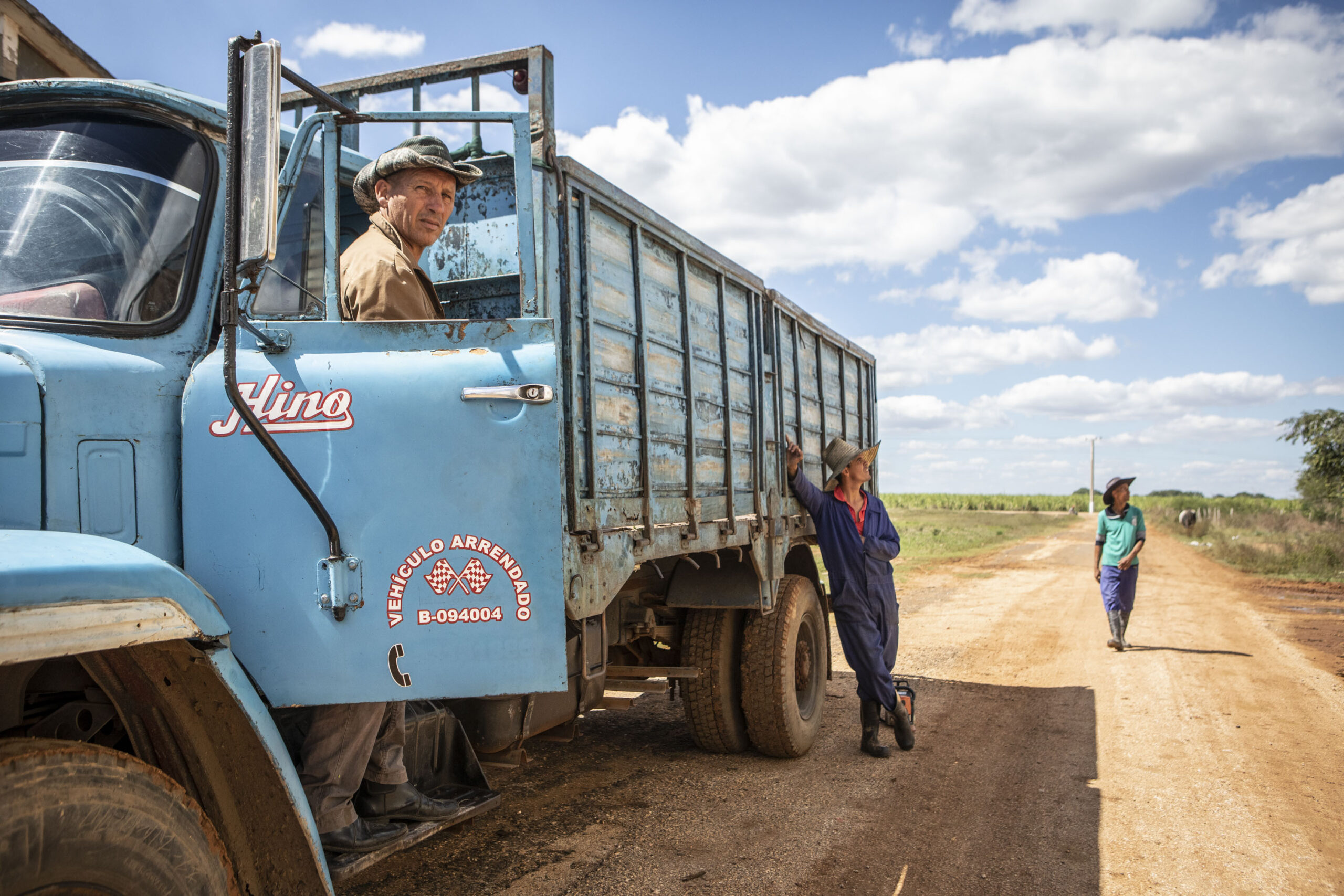
Vegetal Charcoal is an important source of energy used by one-third of the world’s population to meet their needs. For millions of people, its trade is the main source of income, providing a vital economic safety net. According to FAO data, about 3.7 billion cubic meters of wood were extracted…
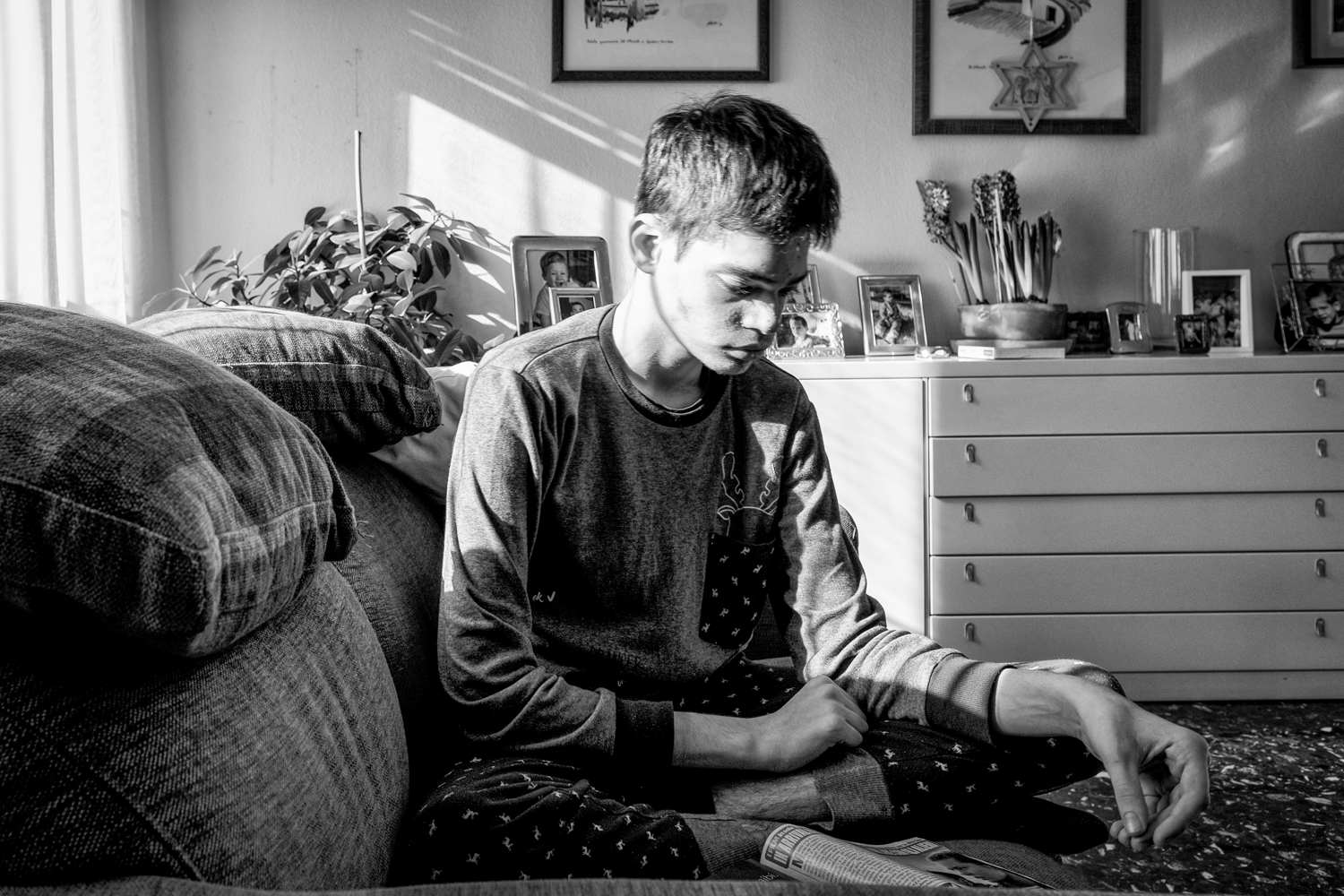
Giorgio, he is a boy and he is also a photographic project born in 2015, when Gianluca Colonnese (Paola, CS, 1979) decided to tell the story of the lives of some young people taken in by Casa Filippide, a socio-educational centre in Cassina de’ Pecchi (MI). Among them is Giorgio,…
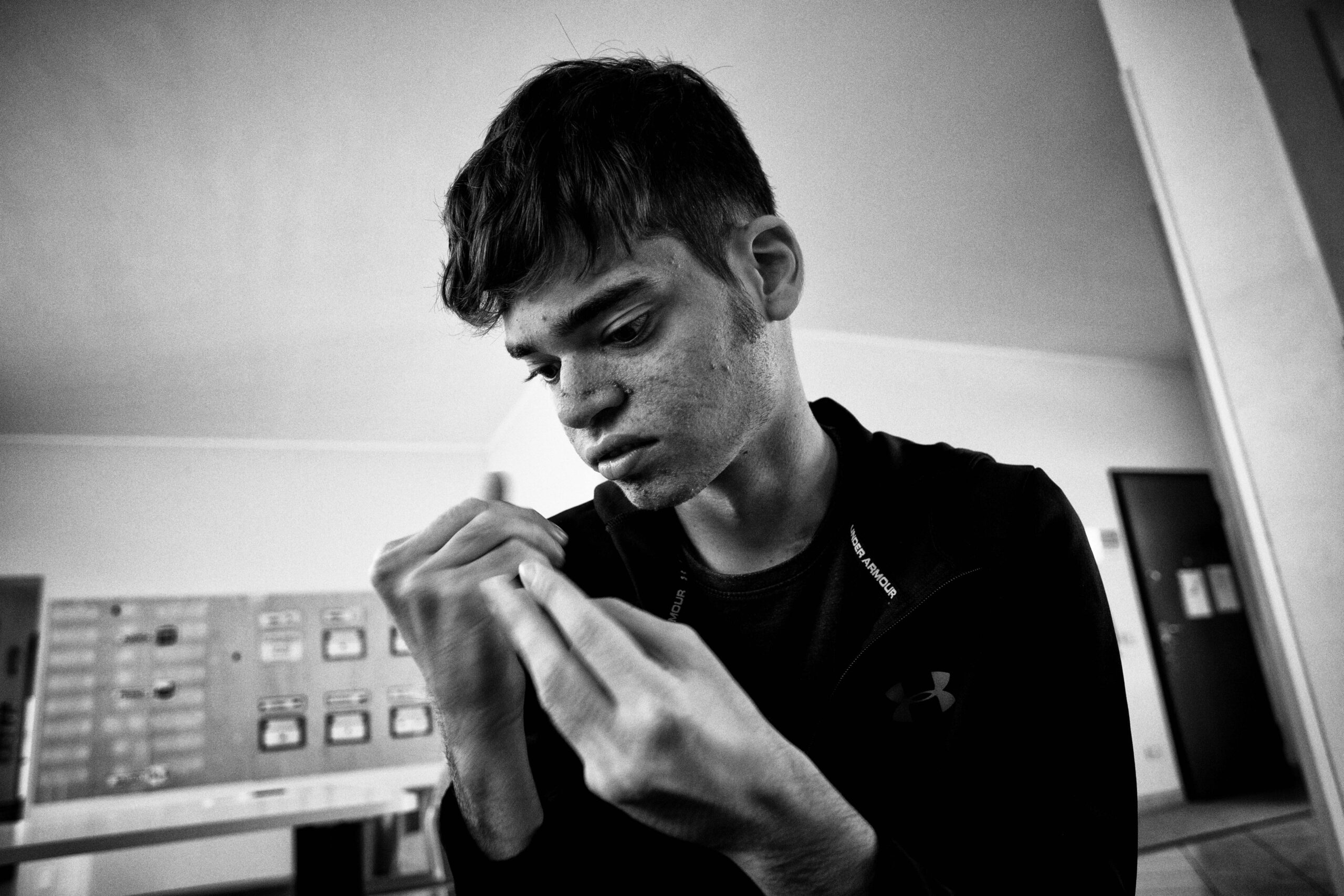
Who does not make noise In February 2020 the world suddenly found itself united by a pervasive health need, because Covid 19 knows no territorial boundaries, social conditions, age, gender, the pandemic affects everyone, highlighting the ‘fragility’ of people and states. According to ISTAT, there are 3.1 million disabled persons…

